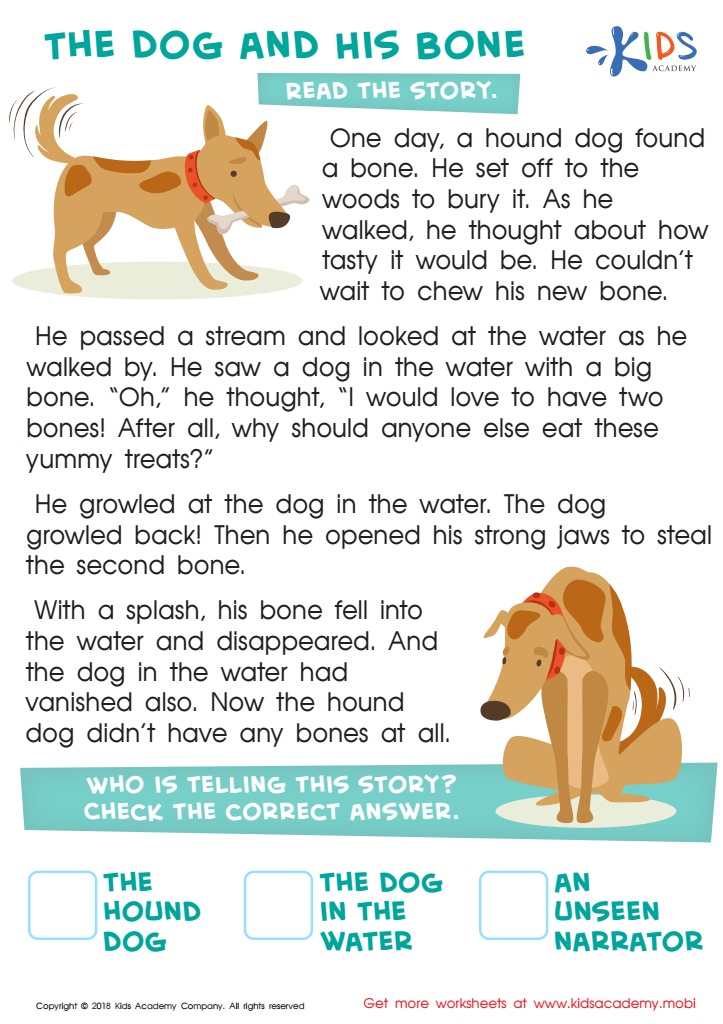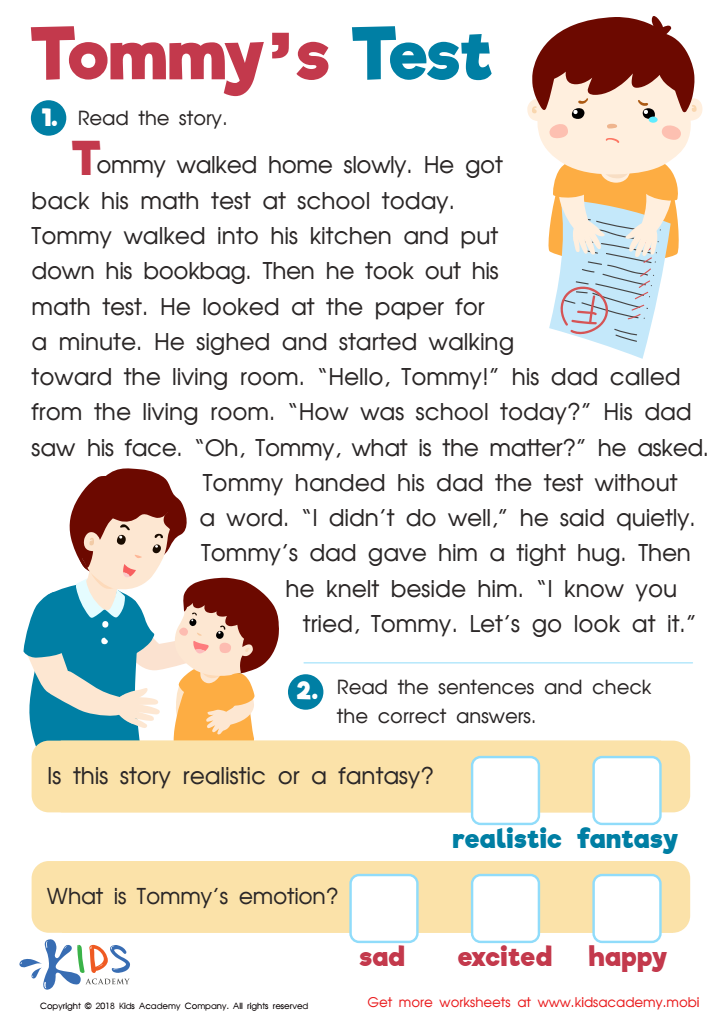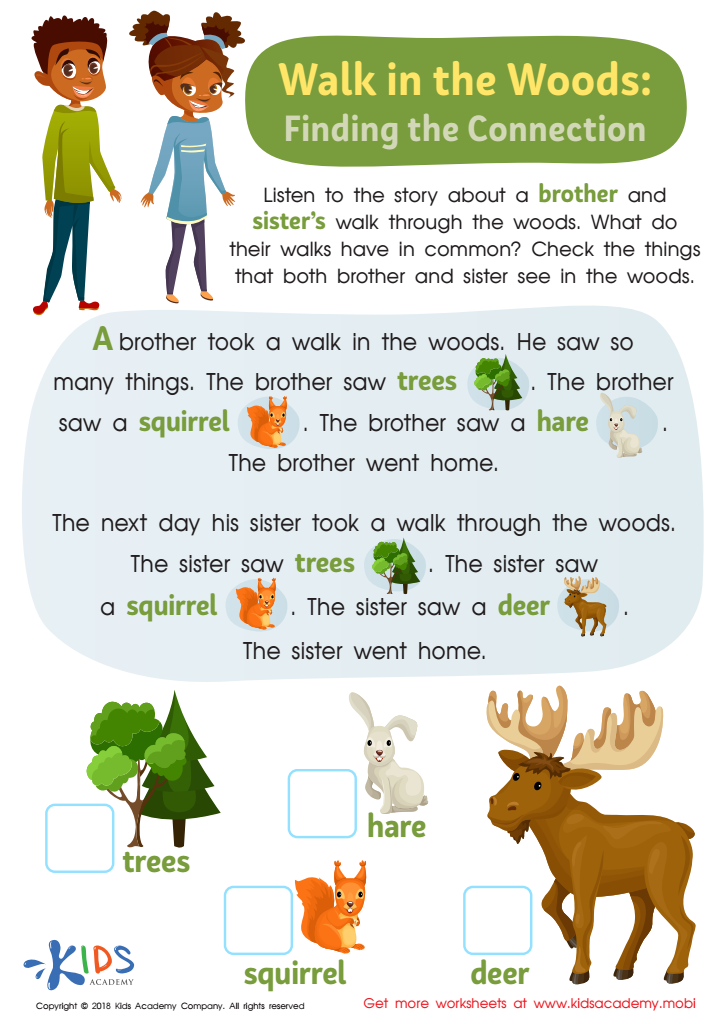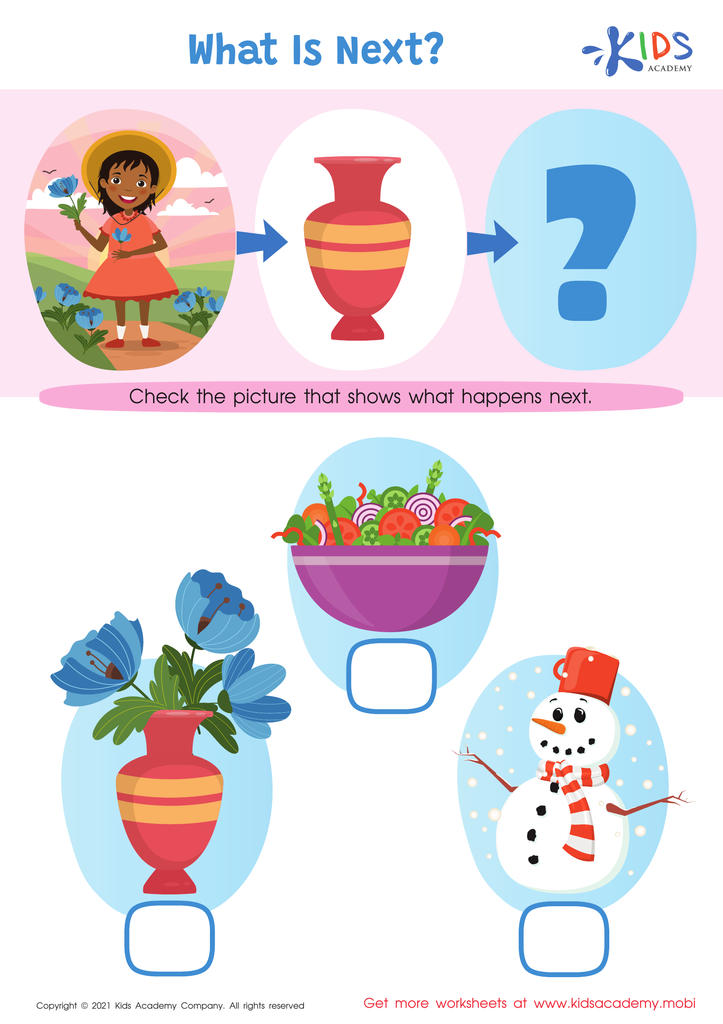Logical thinking Reading Fiction Worksheets for Ages 3-9
4 filtered results
-
From - To
Unlock your child's potential with our "Logical Thinking Reading Fiction Worksheets" designed for ages 3-9. These engaging printables not only spark young imaginations through fascinating stories, but also sharpen cognitive skills. By diving into intriguing narratives, kids enhance their comprehension and inferencing abilities, all while having fun. Each worksheet is crafted to challenge and inspire, encouraging logical thought processes and creative problem-solving. Ideal for both classroom and home use, these resources lay a strong foundation for future academic success. Explore our collection at Kids Academy and watch your child excel in reading and logical thinking!


The Dog and His Bone Worksheet


Tommys Test Worksheet


Walk In the Woods: Finding Connections Worksheet


What is Next? Worksheet
Logical thinking and reading fiction both play crucial roles in the development of children aged 3-9, influencing their cognitive, emotional, and social growth. Logical thinking fosters critical skills such as problem-solving, decision-making, and the ability to think systematically. Early exposure to activities that promote logic, such as puzzles and simple problem-solving tasks, builds a foundation for advanced reasoning abilities required in later academic subjects like math and science.
Reading fiction, on the other hand, enriches a child's imagination, empathy, and language skills. Stories with diverse characters and plots expose children to different perspectives, helping them understand and empathize with others. This emotional intelligence is invaluable for social interaction. Fiction also enhances vocabulary and comprehension, laying the groundwork for future reading and communication success.
By integrating logical thinking exercises and fiction reading into the routine of children aged 3-9, parents and teachers can create a balanced developmental environment. Logic-based activities sharpen the mind and prepare children for academic challenges, while fiction promotes creativity, empathy, and language proficiency. Together, these practices develop well-rounded individuals equipped with both analytical and emotional intelligence, essential for navigating the complexities of life. Thus, fostering both areas is critical for holistic child development.

 Assign to My Students
Assign to My Students
















